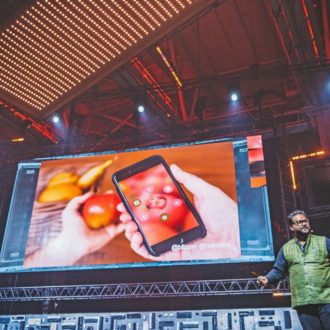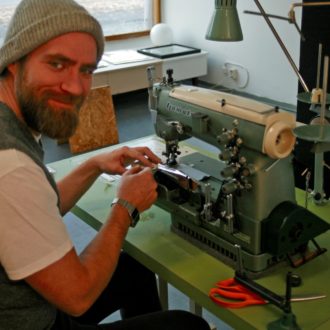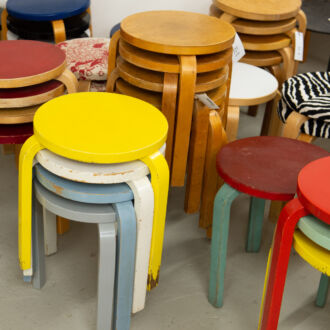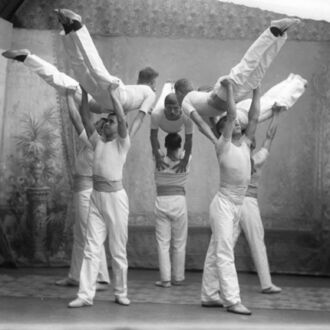Typical news stories about refugees are often negative in one way or another. They rightly detail the horrors refugees face, or describe how the host country is struggling to cope. The organisation Startup Refugees certainly thinks so.
“Startup Refugees was conceived by Riku Rantala and Tuomas Milonoff,” explains Camilla Nurmi, coordinator for the program. “During the filming of their Madventures travel series they came across new talents and skills that Finland did not have. They realised that refugees to Finland were a brain gain instead of just a social and financial challenge. These refugees could bring new business ideas into Finland.”
Meeting skills and needs
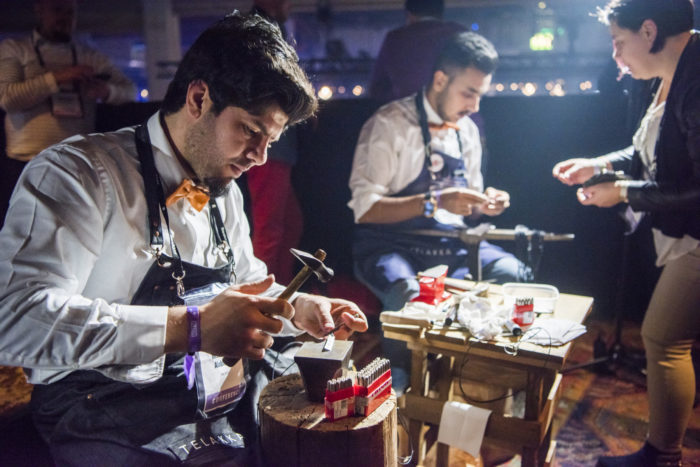
At Slush, some Startup Refugees members make and sell bracelets with customised messages.Photo: Kai Kuusisto/Slush
The response to Startup Refugees was enthusiastic: within two weeks the project had signed up government ministries and departments, NGOs, private individuals and more than 250 companies to offer their services. The refugees loved the idea as well.
“During our first visit to a reception centre, everyone was interested,” Nurmi says. “We gathered their skills and background and asked what they wanted to do. Now we have collected over 1,000 profiles in six cities and have over 20 reception centres wanting to participate next.”
Once a refugee has filled out a profile, his or her needs are matched with what the program’s partners have offered. The Startup Refugees website lists more than 70 partners – organisations such as mobile gaming company Supercell, think tank Demos, Hanken School of Economics, mentor-on-demand app Heippa and Aalto University’s Startup Centre, as well as several government ministries.
Refugees can seek legal help, advice on bureaucracy, mentors, networking and funding for their business ideas. While all these things are necessary for living in Finland or opening a business, refugees can get something even more important from the program.
Changing lives

Slush gives the members of Startup Refugees the opportunity to meet and network with thousands of other entrepreneurs, investors and students. Photo: Esa-Pekka Mattila/Slush
“Startup Refugees is amazing,” says Mustafa Abdulameer. “It changed my life. Without their support I couldn’t develop myself, educate myself or discover more skills about myself.”
Abdulameer comes from Iraq. He is an energetic person, but found himself in a Finnish refugee centre with nothing to do. This forced inactivity was frustrating, mentally debilitating and depressing. When he heard about a new program looking for volunteer translators he immediately signed up.
All of Abdulameer’s boundless energy suddenly found a positive outlet. He quickly became involved in Startup Refugees, working as a translator, organising data collections and helping other refugees with all sorts of things.
“I don’t like to say I help anyone,” Abdulameer says. “I simply share what help others have given me. If I receive some useful knowledge, I have to share it with others.”
Refugee-managed businesses
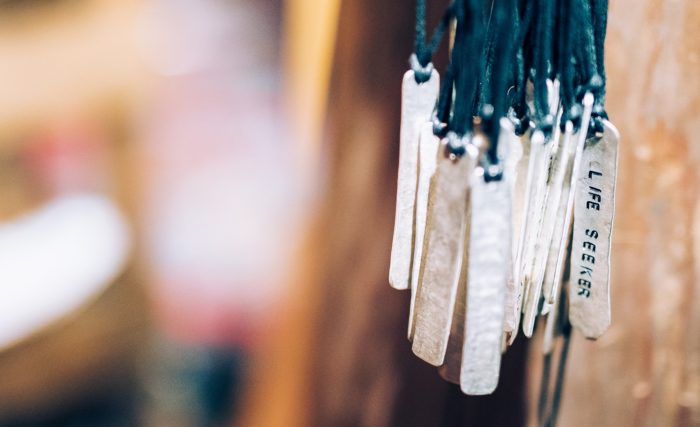
Customers can pick their messages for these customisable bracelets made by the people of Startup Refugees. A sample bracelet reads “life seeker.”Photo: Jussi Hellsten/Slush
Startup Refugees has fully immersed itself in Finland’s well-developed startup ecosystem. The refugees have a variety of business ideas, such as repairing mobile phones or making traditional handicrafts from their home countries.
“One great idea is Baghdad Barbers,” Nurmi says. “The Middle East has a fantastic beard tradition, but here people don’t know how to take care of beards. Hipsters with big beards can go to Baghdad Barbers and get grooming techniques that Finland does not have. There are also services for Muslim women who can get their hair done in private.”
Abdulameer has found several jobs through Startup Refugees; he has worked with Baghdad Barbers and he has done modelling. The program has also helped him to overcome his fear of public speaking. He has pitched his business idea in front of audiences and even found himself sharing a stage with government ministers.
“I have a five-year plan,” he says. “I want to start my own import-export business. I don’t mean only products or technologies, but even ideas and systems. Finland has so many amazing things that would solve problems in my native community. I also want to continue my education and get a master’s degree. Finally, I want to continue working with Startup Refugees. I want to help improve the lives of refugees and change the whole system of integration of asylum seekers for the better.”
By David J. Cord, April 2017
